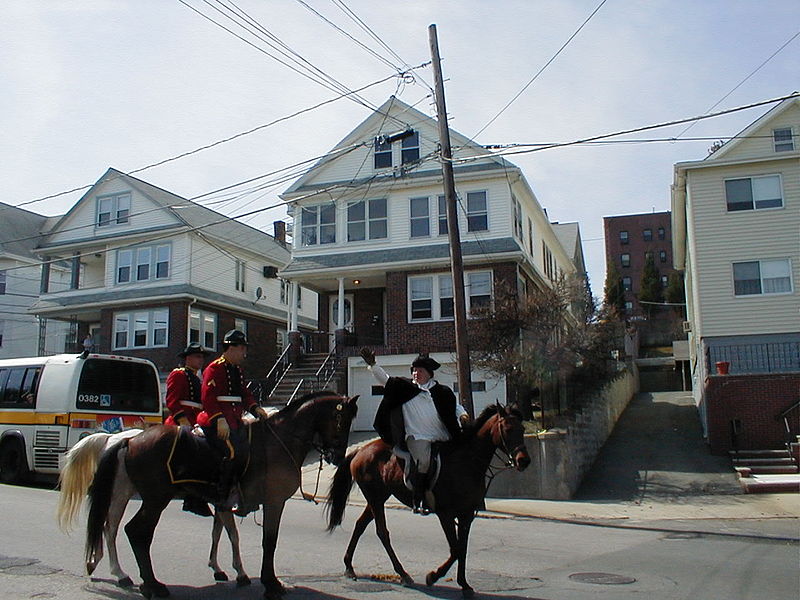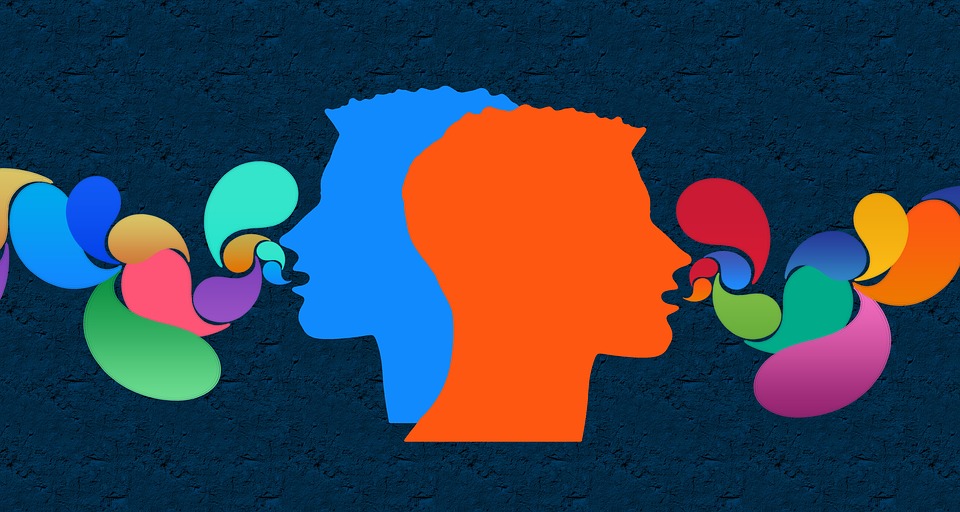It's my pleasure to welcome you to this course. In this section you will be able to practice the four communicative abilities: Listening, reading, speaking and writing using the form used to.

Brennan, P. (n.d.). Bienvenidos a bordo.
Retrieved from: http://www.publicdomainpictures.net/view-image.php?image=117434&picture=willkommen-an-bord-anmelden
This topic is highly significant because you will be able to use the term "used to" to describe past events, memories to express facts, habits and routines that no longer occur.
I hope you enjoy it and make the most of it!
Good luck!
By the end of this topic you will:
Use the term "used to" from facts that describe past events, memories to express facts, habits and routines that no longer occur.
Welcome to this grammatical form known as
“used to”.
You will use this structure to talk about habits or recurring events in the past that no longer happen.
Is there additional information on sentences with used to?
The answer is: Yes!
The structure doesn't just express a past event, but more specifically an earlier stage in a person's life which has now finished.
As you could see, "Used to" expresses the idea that something was an old habit that stopped in the past. Now you will learn and practice how this form is structured. So let’s continue with a listening activity.
Now listen and decide which person is described in the audio: option A or option B. Listen to the recording as many times as you need.
Click to listen to the audio:
To practice pronunciation and intonation, repeat the sentences. Copy the text on the ttsreader to listen to it again.
As you heard in the audio, the modal "used to + verb" is used for a repetitive or habitual action in the past.
It doesn't continue in the present time and is indicated by: "but I don't anymore" or "but not anymore."
It is important that you recognize the form that will let you express your memories, habits, situations or past routines as well as from others.
The question form looks like this:
(?) Did you use to ……….? (play a lot of tennis at 16?)
(-) No, I didn't use to ….. (play tennis.)
(+) Yes, I used to play tennis, but I don't anymore.
Look at this chart on how the structure of this grammar point is.
When can we use “used to” for:
Something that happened regularly in the past but no longer happens.
For something that was true but no longer is.
Wh-questions are used in the past continuous in order to ask for specific information:

• Place
| Example: | Where was (I, He, She, It) going? |
| (I, He, She, It) was going to Chapultepec Park. | |
| Where were (You, We, They) going? | |
| (You, We, They) were going to Chapultepec Park. |
• Specific thing, object
| Example: | What was (I, He, She, It) doing? |
| (I, He, She, It) was eating Mexican food. | |
| What were (You, We, They) doing? | |
| (You, We, They) were eating Mexican food. |
• Time
| Example: | When was (I, He, She, It) going? |
| (I, He, She, It) was going in the morning. | |
| When were (You, We, They) going? | |
| (You, We, They) were going in the morning. |
• Is only used when referring to people
| Example: | Who was (I, He, She, It) going with? |
| (I, He, She, It) was going with my mother. | |
| Who were (You, We, They) going with? | |
| (You, We, They) were going with my mother. |
• Reason, explanation
| Example: | Why was (I, He, She, It) flying by plane? |
| (I, He, She, It) was going with my mother. | |
| Why were (You, We, They) flying by plane? | |
| Because, (You, We, They) were visiting Mexico City. |
Activity 1
You will read a passage about what Peter used to do some years ago.
After reading the text, there are some questions you need to answer. Select the correct options True (T) and False (F).

 Cello 5. (2006). Acapulco Football.
Cello 5. (2006). Acapulco Football.
Retrieved from: https://pixabay.com/en/acapulco-football-beach-boys-game-81382/
Activity 3
Listen to the following interview with Mathew. Based on the conversation choose the best option.
First, read the answers given in the interview, then carefully listen to the audio.
Click to hear the audio:
Choose the correct option to complete the conversation.

Activity 4
In the following audio you will listen to an interviewer that approaches people in several streets.
Listen very carefully to the dialogs.
Choose one of the three options that best completes the sentences correctly.
You can listen to the audio as many times as necessary.
Activity 5
Look at the following pictures. Match column 1 with the images in column 2 that shows how things used to be and how they are now.
Activity 6
Now it’s time to practice the form, rearrange the words to make a sentence about what happened in the past (column 1) and what happens in the present (column 2).
Activity 7
Past habits make us have good childhood memories. From the following questions choose 4, then write the answer to justify it.
1. Did you use to play in the street outside your home?
2. What kind of toys did you use to play with?
3. What did you use to do in your vacations?
4. How did you use to celebrate Christmas?
5. Where did you use to play when you were a child?
Please read the rubrics to know what is expected in your writing task and check the correct use of “used to”.
Check the following example:
I remember I used to get up very early to go to school, at 4 am! But now I don’t. I live closer to school now. So I get up at 6:00. Also, I used to buy lots of junk food at the school cafeteria, but now I prepare a healthy lunch. It includes a sandwich, fruit and some energy bars.
I used to take the bus, well two to school. I had to run to catch them. Now I got my car, and I get time to arrive early to school and to stay a little longer for extracurricular activities at school.
Activity 8
Now it is your turn. An interviewer is asking you some questions.
Please listen and read the questions:
To hear the audio: 

GERALT. (2017) Communication. Retrieved from https://pixabay.com/es/comunicaci%C3%B3n-la-cabeza-globos-1991850/
1. What is a food that you used to hate, but now you like?
2. Who used to be your hero when you were young?
3. Did you use to get good grades in high school?
4. Where did you use to play when you were a child?
5. How often did you use to get in trouble when you were younger?
6.What was your country like when you were a child?
Practice your answers until you feel comfortable with your pronunciation then make your recording.
Do not record the questions, only your answers. After you finish, check that you used “Used to” in each sentence. Make sure you used the correct intonation and pronunciation.
Interviewer: Do you think the past was better than the present? Why or why not?
You: Well, I think that the present is better than the past because people didn’t use to…. etc.
Or...
You: Well, I think that the past was better than the present because people used to…
Read the following rubrics. They will help you understand what is expected in your speaking task.
Based on the sentence complete it by adding “used to” + infinitive.
• MacMillan. (2006). Used to + infinitive. Retrieved from: http://www.macmillaninspiration.com/original/files/2010/07/INSP3_ws11.pdf
• Learn English Teens. (2017). Used to. Retrieved from: http://learnenglishteens.britishcouncil.org/grammar-vocabulary/grammar-videos/used
• Cotter, C. (2016). Used to. Retrieved from: http://www.headsupenglish.com/index.php/lower-intermediate-students/lower-intermediate-skill-builders/lower-intermediate-grammar/336-used-to
• Dashkewitz, A. (2014). Used to for past habits. [Slides]. Retrieved from: https://es.slideshare.net/alinaemma/used-to-for-past-habits-and-routines-exercises
• Games to learn English. (n.d.). Used to worksheet. Retrieved from: http://www.engames.eu/wp-content/uploads/2015/11/Used-to-grammar-worksheet.pdf
• Jung. M.( 2017).Grammar challenge. Used to / didn’t used to. Retrieved from: http://www.bbc.co.uk/worldservice/learningenglish/radio/specials/1346_gramchallenge15/
• Renedo, M. (2013). Used to. [Slides]. Retrieved from: https://es.slideshare.net/MargaRenedo/used-to-16552600